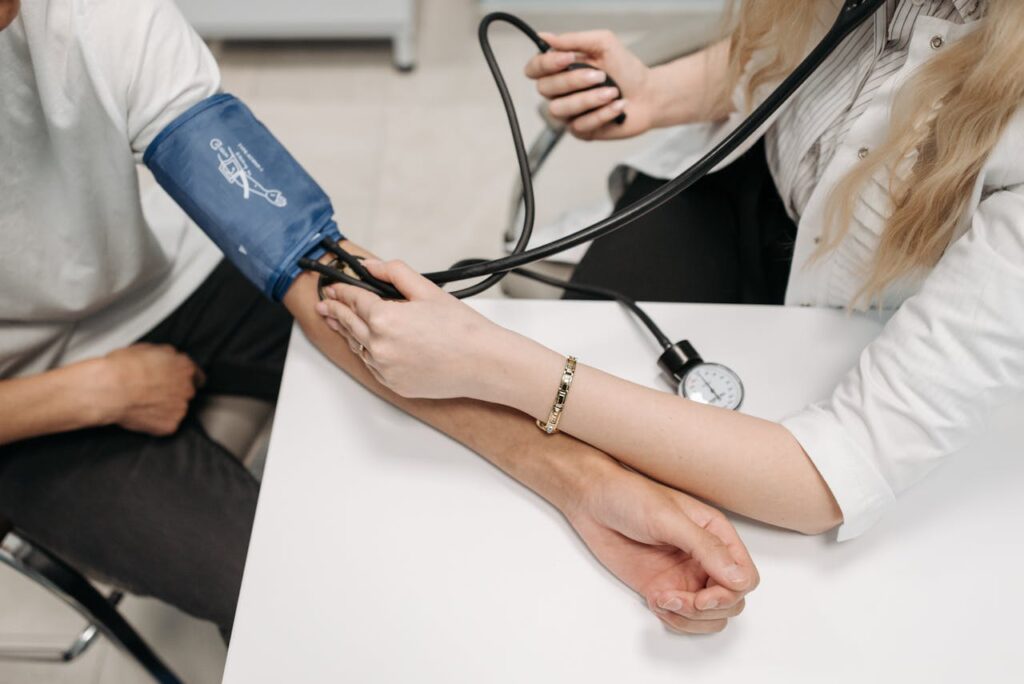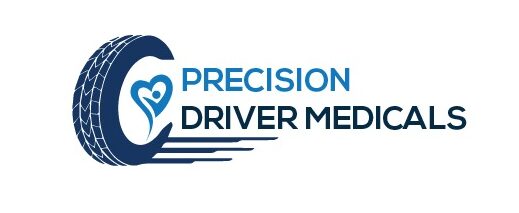Discover the importance of taxi driver medicals in ensuring passenger safety, public trust, and legal compliance. Learn about the essential components of driver medical tests, their influence on road safety, and the advantages to driver well-being. Investigate how these exams improve professionalism and meet insurance criteria.
Ensuring the safety of passengers and other road users is paramount, and one critical measure to achieve this is the medical examination for taxi drivers. This process, often referred to as taxi driver medicals, plays a crucial role in maintaining high health and fitness standards among professional drivers. This blog will delve into the importance of taxi driver medicals, highlighting critical aspects of the driver medical examination and explaining why these checks are essential for the transportation industry.
What Are Taxi Driver Medicals?
Taxi driver medicals are comprehensive health assessments that evaluate whether a driver can operate a taxi. Local licensing authorities and the Driver and Vehicle Licensing Agency (DVLA) mandate these examinations to ensure that all taxi drivers meet specific medical standards.
Critical Components of the Driver Medical Examination
The driver’s medical examination typically includes the following components:
- Vision Test: Visual acuity and peripheral vision are assessed to ensure the driver can see and react to environmental changes.
- Cardiovascular Health: Checking for conditions like high blood pressure or heart disease that could impair a driver’s ability to operate a vehicle safely.
- Diabetes Screening: Ensuring diabetes is well-managed and does not pose a risk while driving.
- Neurological Evaluation: Screening for neurological disorders, including epilepsy, that could affect driving ability.
- Mental Health Assessment: Evaluating mental health to ensure drivers are psychologically fit for the job’s demands.

Importance of Medicals for Drivers
Ensuring Passenger Safety
The primary reason for taxi driver medicals is to ensure the safety of passengers. A driver who is not in optimal health can pose significant risks. Conditions like impaired vision or unmanaged diabetes can lead to accidents, endangering both passengers and other road users.
Maintaining Public Trust
Public trust in the taxi industry is crucial. Knowing that all drivers have passed rigorous medical examinations not only reassures passengers that they are in safe hands but also instils a sense of confidence in the service they are using. This trust is vital for vulnerable groups, such as older people or those with disabilities, who rely heavily on taxi services.
Legal Compliance
Meeting the legal requirements for taxi driver medicals is essential for maintaining a valid taxi license. Failure to comply with these medical standards can result in the suspension or revocation of a driver’s license, impacting their livelihood.
Promoting Driver Well-being
Regular medical examinations can help identify health issues early, allowing for timely intervention and management. This proactive approach not only ensures drivers are fit for duty but also promotes their overall well-being, making them feel cared for and valued and contributing to longer, healthier careers.
Enhancing Road Safety
Healthy drivers are less likely to be involved in road accidents. By ensuring that all taxi drivers meet stringent health standards, we contribute significantly to safer roads for everyone. This is particularly important in urban areas where taxis are a standard mode of transportation, making the general public feel protected and secure.

The Role of Driver Medical Examination in Safety
Vision and Hearing Tests
The vision and hearing tests are crucial to the driver’s medical examination. Clear vision and good hearing are essential for responding to road signals, pedestrians, and other vehicles. Drivers must meet minimum requirements to operate safely in various traffic conditions.
Cardiovascular Health Monitoring
Cardiovascular health is a significant aspect of the medical examination. Conditions like hypertension or heart disease can severely impact a driver’s ability to react quickly in emergencies. Regular monitoring helps in managing these conditions effectively.
Diabetes Management
Diabetes is another critical area covered in taxi driver medicals. Drivers with diabetes need to demonstrate that their condition is well-controlled and that they are not at risk of sudden hypoglycemic episodes, which could be dangerous while driving.
Neurological and Mental Health Assessments
Neurological disorders and mental health conditions can significantly affect driving capabilities. The medical examination ensures that drivers do not have conditions that could cause sudden incapacitation or impaired judgment.
The Procedure of Taxi Driver Medicals
Booking and Preparing for the Exam
Booking a taxi driver medical is straightforward. It is often available online through services like Precision Driver Medicals. Preparing for the exam involves bringing necessary documents, such as medical history and current medications.
During the Examination
The medical examination is conducted by a registered GP or a medical professional familiar with DVLA standards. It includes a series of tests and assessments to comprehensively evaluate the driver’s physical and mental health.
Post-Examination Process
After the examination, the medical professional will complete a report, which is then submitted to the DVLA or relevant licensing authority. If the driver meets the required standards, they will receive certification to continue driving. However, if the driver does not meet the standards, they may be required to undergo further medical assessments or could face suspension or revocation of their license.

The Impact of Taxi Driver Medicals on the Industry
Reducing Accidents and Improving Safety
By ensuring that all drivers meet health standards, taxi driver medicals contribute significantly to reducing accidents. Healthy drivers are more alert, have better reaction times, and are less likely to suffer medical emergencies while driving.
Enhancing Professionalism
Taxi driver medicals also enhance the professionalism of the industry. Fit and healthy drivers are more likely to provide high-quality service, be courteous to passengers, and handle stressful situations better.
Supporting Insurance and Liability Requirements
Insurance companies often require proof of medical fitness as part of their liability coverage criteria. Regular medical examinations help drivers meet these requirements, ensuring they are covered in the event of an accident.
Encouraging Regular Health Check-Ups
Regular medical examinations require drivers to be proactive about their health. This can lead to early detection and treatment of health issues, ultimately promoting a healthier workforce.
Challenges and Considerations
Cost and Accessibility
One of the challenges associated with taxi driver medicals is the cost and accessibility of the examinations. However, services like Precision Driver Medicals offer affordable and convenient options, making it easier for drivers to comply with regulations.
Keeping Up with Health Standards
As medical standards evolve, drivers and medical providers must stay updated with the latest requirements. This ensures that all health checks are relevant and comprehensive.
Balancing Privacy and Compliance
Drivers may have concerns about privacy during medical examinations. It is crucial to balance these concerns with the need for compliance and safety, ensuring that all health data is handled with confidentiality and care.
The Essential Role of Taxi Driver Medicals
Taxi driver medicals are essential to ensuring safety and maintaining high standards in the transportation industry. By requiring drivers to undergo regular health checks, we can protect passengers, maintain public trust, and promote road safety. At Precision Driver Medicals, we are committed to providing comprehensive and accessible medical examinations to support the health and safety of all drivers. We encourage all drivers to prioritize their health and safety by scheduling regular medical examinations.


